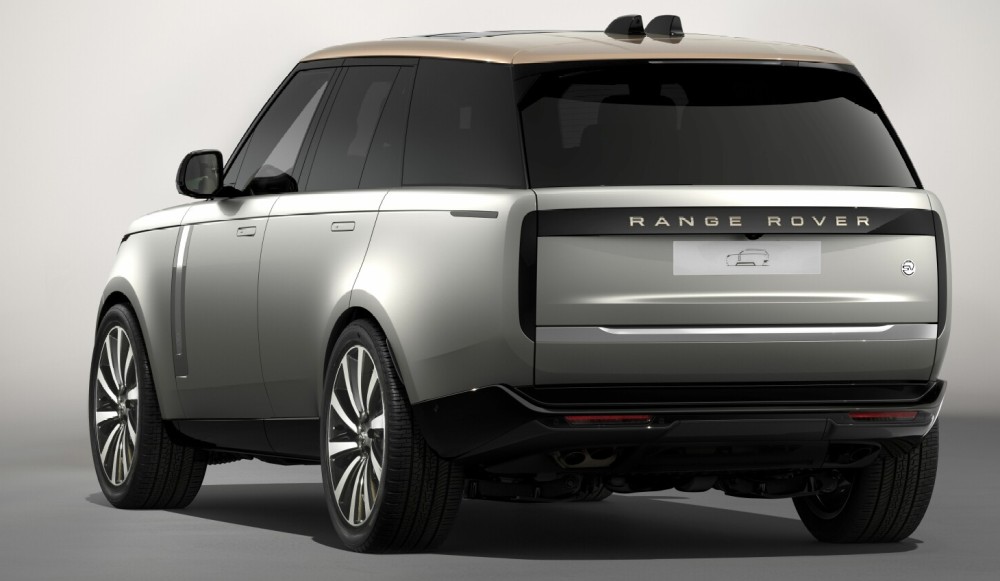In the realm of motoring, enthusiasts often find themselves lured by the promise of a personalised and enhanced driving experience. The notion of modifying one's car can be appealing, offering a sense of individuality and improved performance.
However, not all modifications are created equal, and some can lead to regrettable consequences, especially when it comes to resale value. For those considering purchasing a pre-owned vehicle, understanding these pitfalls is essential. Here, we explore the five worst modifications you can make to your car, and why steering clear of them is often the wisest choice.
 You can go exotic without doing mods - click here and take a look
You can go exotic without doing mods - click here and take a look
Overly Large Wheels and Tyres
Swapping your car's standard wheels for oversized ones might seem like a stylish upgrade, but it's fraught with drawbacks. Bigger wheels often lead to increased fuel consumption due to added weight and altered aerodynamics.
This modification can also stress the suspension system, making your ride bumpier and accelerating wear and tear. Additionally, overly large wheels can mess with your car's speedometer accuracy and potentially interfere with electronic stability controls.
The visual appeal does not compensate for the practical issues, such as higher fuel costs and a compromised driving experience. This makes it a modification worth reconsidering.

Maybe Classics are your things - so check these out
Extreme Engine Tuning
Pushing your car's engine to its limits through extreme tuning might sound appealing, but can create complications. This process usually involves tweaking the engine's electronic control unit (ECU) to draw out more power. While this can lead to a noticeable boost in performance, the repercussions often outweigh the benefits.
Firstly, the additional strain on the engine can cause accelerated wear and tear, potentially shortening its lifespan. This can translate into frequent and costly repairs down the line. Another significant risk is voiding the manufacturer's warranty, leaving you to foot the bill for any issues that arise.
There's also the matter of legal compliance. Extreme tuning can push your vehicle beyond regulated emissions standards, exposing you to potential fines and the need for costly modifications to bring the car back into compliance. Moreover, increased fuel consumption is another side effect, which can add up over time and impact your wallet.
In essence, while the allure of a more powerful engine is strong, the risks and expenses associated with extreme tuning make it a modification worth thinking twice about.
Lowering the Suspension
Lowering the suspension is a popular modification among car enthusiasts aiming for a sportier appearance and improved handling. However, this change often comes with a set of significant trade-offs.
Firstly, reducing the suspension height generally results in a firmer ride, as the shorter springs offer less cushioning over bumps and rough surfaces. This can make daily commutes uncomfortable and tiring, especially on uneven roads.
Additionally, lowered cars often face ground clearance issues. The reduced height makes it easier for the underside of the vehicle to scrape against speed bumps, curbs and potholes, leading to potential damage and costly repairs. This is particularly problematic in urban areas with varied road conditions.
Furthermore, lowering the suspension can also have adverse effects on your car’s alignment and tyre wear. The altered geometry may lead to uneven tyre wear, necessitating more frequent replacements and alignments. This not only impacts the performance and safety of the vehicle but also adds to maintenance costs.
The aesthetic appeal of a lowered car is often at odds with these practical drawbacks, making it a modification that can do more harm than good in the long run. Lowered suspensions can also deter potential buyers when it comes time to sell, as many view such modifications as a sign of potential misuse or neglect. Therefore, while the visual and handling benefits may be tempting, the associated risks and expenses make this a modification worth careful consideration.
Use our finance calculator to check the numbers
Installing Loud Exhaust Systems
Altering the exhaust system to make it louder is a popular trend among car enthusiasts who enjoy the roar of a powerful engine. However, this modification can lead to several complications. Excessive noise can result in legal issues, as many areas have strict noise regulations that such modifications may breach.
Beyond legal concerns, a loud exhaust can become quite grating on long journeys, contributing to driver fatigue. Additionally, these modifications often affect engine performance negatively, reducing efficiency and potentially causing long-term damage.
Another consideration is the impact on resale value, as many potential buyers are deterred by modifications that make the vehicle less discreet or more prone to mechanical issues. It's worth noting that keeping the exhaust system close to factory specifications usually provides a more balanced and reliable driving experience.
They might not play 'toons' but these insurance options are for real
Adding Non-Standard Electronics
Adding non-standard electronics to your car can seem like a great way to modernise your driving experience, but it often leads to more trouble than it's worth. Retrofitting advanced gadgets such as aftermarket infotainment systems, additional lighting or complex sound systems can interfere with your car's original electrical setup.
This can result in unexpected faults or even complete system failures. Poorly installed electronics might drain your battery or cause electrical shorts, posing safety hazards you might not foresee. Furthermore, these non-standard add-ons can be difficult to integrate seamlessly with your vehicle’s existing systems, leading to a less reliable driving experience.
Another drawback to consider is the potential devaluation of your car. Many potential buyers are sceptical of aftermarket electronics due to concerns about their durability and compatibility. They may worry that these additions could lead to long-term reliability issues, which can make your vehicle less appealing on the resale market. Original factory-installed systems are generally more reliable and better integrated with the car’s overall design, ensuring optimal performance and longevity.
Additionally, the complexity of modern car electronics means that any changes can have wide-ranging implications, potentially affecting everything from the engine management system to safety features. Even something as simple as adding extra lighting can put undue stress on the car’s electrical system, increasing the risk of future malfunctions.
Therefore, while the allure of high-tech gadgets is understandable, the potential risks and costs associated with non-standard electronics often outweigh the benefits. It’s usually better to stick with factory-installed options or seek professional advice if you feel an upgrade is necessary. This way, you can enjoy the benefits of modern technology without compromising your vehicle's integrity and value.
Colin Windell for Colin-on-Cars in association with
proudly ALL THINGS MOTORING








